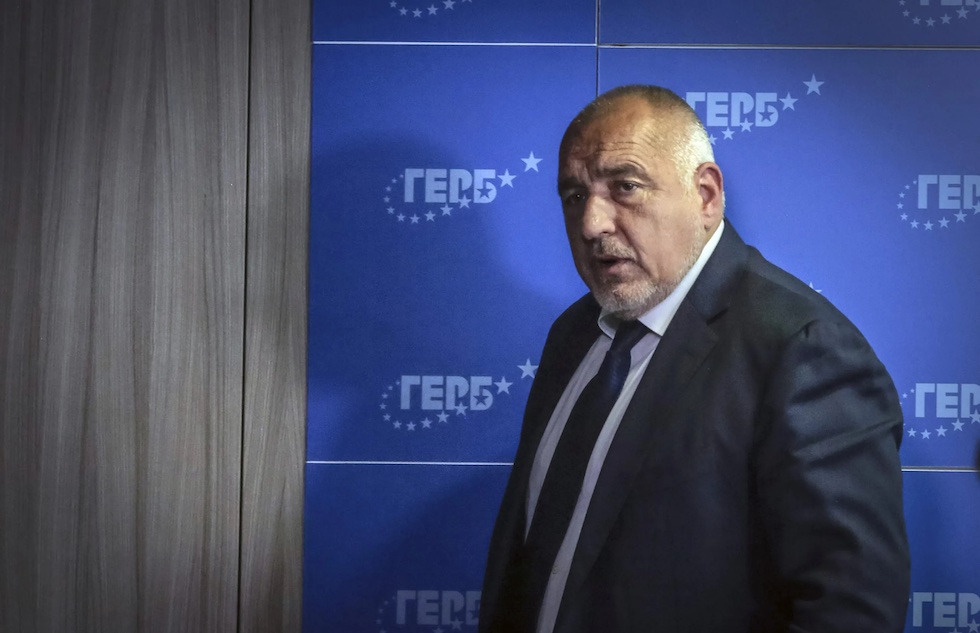In Bulgaria, even the fifth election in two years could be useless
In Bulgaria today we vote to elect the 240 members of parliament: they are the fifth legislative elections in less than two years, the last one was held in October 2022, but they did not lead to the formation of a government. Bulgaria has been experiencing a long period of political instability since sustained popular protests against corruption in 2021 led to the fall of centre-right Prime Minister Boyko Borisov, who had ruled almost continuously since 2009. Since then the Bulgarians have gone to vote four times (April 2021, July 2021, November 2021 and October 2022) but only one political government has been formed, that of the centrist Kiril Petkov, which lasted just over six months.
According to polls, even these elections will hardly give a clear result and will allow the formation of a stable government, if not with very complex alliances. The substantial legislative immobility of recent years, caused by the political situation, has made it impossible to implement the reforms required by the European Union, especially in the economy and in the fight against corruption. Bulgaria has been a member of the EU since 2007, it is the poorest of the 27 member states and has long applied to join the countries adopting the euro as their currency.
The stated goal was to be able to meet the required conditions by 2024, but a postponement of at least a year has already been decided. Although Bulgaria is a parliamentary republic, the impossibility of forming a political government in recent years has greatly increased the centrality and powers of the president of the republic, Rumen Radev, who is considered rather close to Russia. Last August Radev appointed Galab Donev, formally an independent, prime minister and then confirmed him after the last elections when attempts by three different political forces to form a government failed.

Bulgarian President Rumen Radev in Brussels (AP Photo/Virginia Mayo) Donev's interim government brought Bulgaria closer to Russia and reneged on the pro-European and pro-Western policies of the previous government, making energy supply and cost - as well as the country's international positioning - become the most important and controversial issues of the election campaign: the interim government has rejected the liquefied gas from the United States and has instead reopened negotiations with the Russian Gazprom. In view of these elections, the two parties that are credited with the best percentages (in coalition with minor allies), are precisely those of the last prime ministers: GERB (Citizens for European Development of Bulgaria) of Borisov and Let's Continue the Change (PP) of Petkov, both given around 26 percent.
Both parties are considered pro-Western: Petkov's government in particular had been resolute in its economic decisions aimed at isolating Russia after the invasion of Ukraine and recently claimed to have secretly sent weapons to Zelensky's government. Despite similar positions, however, an alliance has so far been ruled out: Borisov has a bad reputation due to allegations of corruption, connivance with organized crime and racism, and his figure is very polarizing. Parliament, which on paper remains in office for four years, will be elected using the proportional method and a threshold threshold for parties or coalitions set at 4 percent: there are 5,579 candidates, fifteen running parties, seven coalitions.
At the moment only five are sure to cross the threshold. Behind the two major parties, polls attribute almost 14 percent of the votes to the centrist and popular Movement for Rights and Freedoms (DPS) among the Turkish minority, and to Rinascita, ultranationalist and pro-Russian (13.6 percent); the Socialists are the fifth force, with just over 8 percent of the vote. 
Former Prime Minister Boyko Borisov (AP Photo/Valentina Petrova)
The electoral campaign was very animated and tense, also due to the decision of state television to host all the candidate parties in the debates, even those that had collected a few thousand votes in the last elections, making the confrontations chaotic and full of insults and threats . Voters are also showing some disillusionment and weariness: voter turnout rates fell from 52.7 percent in 2017 to 39 percent last October, the lowest turnout since Bulgaria adopted a democratic system, in 1990. Bulgaria also has a serious vote-buying problem, so much so that just over a year ago the possibility of voting only by electronic voting was established; according to some studies, the problem could increase in this electoral campaign, also because voting on paper ballots has been reintroduced in the meantime.
According to the estimate of the Bulgarian NGO Anti Corruption Fund, 30 percent of the votes would be at risk, while the cost of a single vote would be around 75 euros.
Bulgarian police have already opened 48 investigations into alleged vote-buying.